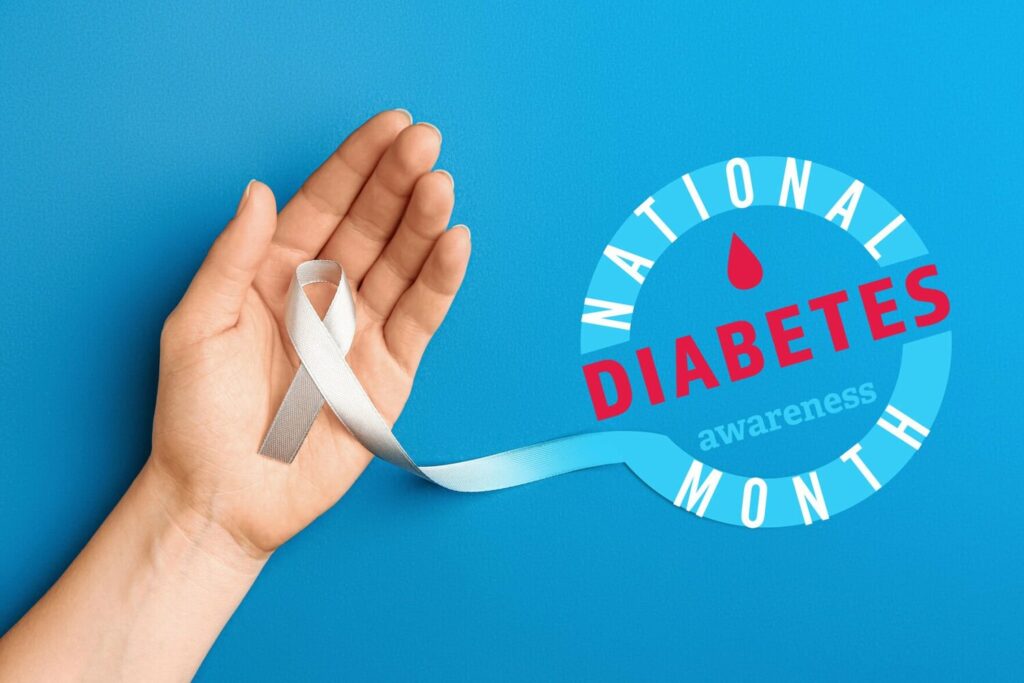Kirstyn Dietle, MPH, CHES®️
Health Educator
Adair County Health Department
Welcome to the Public Health Corner: Diabetes Awareness Month
Each November, Diabetes Awareness Month shines a spotlight on the realities of living with diabetes and underscores the urgent need to address the growing diabetes epidemic. With millions of people worldwide impacted, this observance provides a platform to spread awareness, empower individuals with knowledge to manage and prevent the disease, and advocate for equitable access to care. The month-long campaign culminates in World Diabetes Day on November 14th, marking the birthday of Sir Frederick Banting, who co-discovered insulin—a life-saving treatment for people with diabetes.
Understanding Diabetes and Its Prevalence
Diabetes is a chronic disease that affects how the body processes blood sugar (glucose). There are three main types of diabetes:
Type 1 diabetes, often diagnosed in childhood, is an autoimmune condition where the body attacks insulin-producing cells.
Type 2 diabetes, the most common form, often develops due to lifestyle factors such as poor diet, obesity, and physical inactivity.
Gestational diabetes occurs during pregnancy and increases the risk of developing type 2 diabetes later.
The prevalence of diabetes is rising rapidly, with more than 400 million people worldwide currently living with the condition. Without proper management, diabetes can lead to severe complications, including heart disease, stroke, kidney failure, vision loss, and amputations. By focusing on prevention, early detection, and management, we can mitigate these risks and improve the lives of those affected.
Prevention and Healthy Lifestyle Choices
Type 2 diabetes can often be prevented or delayed by making healthier lifestyle choices. Simple actions, such as engaging in regular physical activity, eating a balanced diet rich in whole foods and low in sugars, maintaining a healthy weight, and avoiding smoking, are critical steps in prevention. Raising awareness of these preventive measures during Diabetes Awareness Month can empower individuals to make informed health decisions.
Empowering People with Diabetes
Managing diabetes effectively is essential to reduce complications and improve quality of life. This includes regular monitoring of blood glucose levels, medication adherence, healthy eating, and regular exercise. Support from healthcare professionals, diabetes educators, and community resources is vital for those living with diabetes. Throughout November, educational campaigns focus on providing tools, resources, and support systems to help individuals navigate their diabetes journey and live their healthiest lives.
Addressing Health Disparities and Access to Care
Diabetes disproportionately affects certain populations, including low-income communities and racial and ethnic minorities, who often face barriers to care. Diabetes Awareness Month emphasizes the importance of breaking down these barriers by advocating for policies that improve access to affordable medications, diagnostic tests, and diabetes education. Closing gaps in care is critical to reducing diabetes-related complications and promoting health equity.
Ways to Participate
There are numerous ways to get involved in Diabetes Awareness Month:
Wear blue on November 14th and participate in events that raise awareness of diabetes.
Share educational materials on social media and use hashtags such as #DiabetesAwarenessMonth and #WorldDiabetesDay to spread the word.
Organize or attend community events like diabetes walks, screenings, or informational sessions to engage others and share valuable resources.
By raising awareness, promoting education, and advocating for better diabetes care, Diabetes Awareness Month empowers people to take control of their health and offers hope for a future where diabetes is better understood, managed, and ultimately prevented. Let us come together to reduce the impact of diabetes and support those on their journey to better health.

